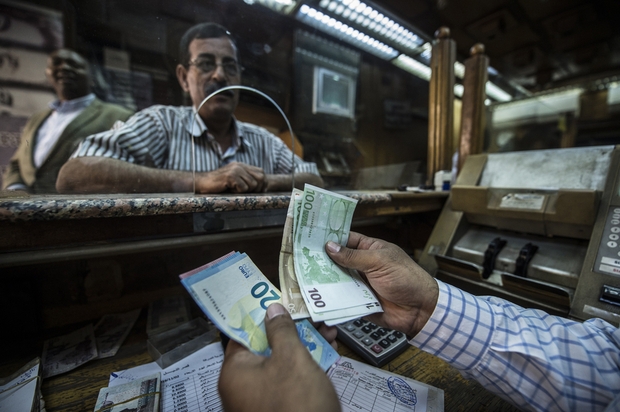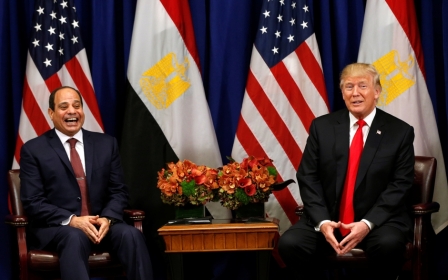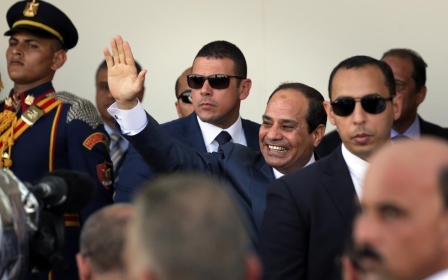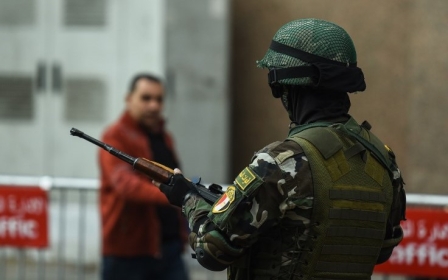Is Sisi hindering Egypt's economic progress?
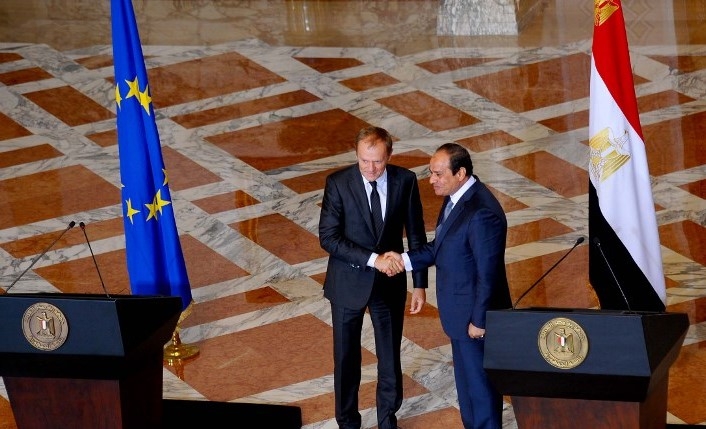
Five years after the coup that toppled Egypt's first democratically elected president, Mohammed Morsi, and the Rabaa massacre that resulted in the deaths of hundreds of Muslim Brotherhood supporters during the army's raid on two squares occupied by the movement, the Egyptian regime continues to ramp up its repressive hold on power.
But even as European actors accept that Egyptian military rule is going nowhere in the near term and increasingly ignore - and even abet - the brutality of the Egyptian regime, they would be wise to pay careful attention to the continued signs of economic and social risk hovering on the horizon that raise the very real prospect of instability in Egypt.
Laudatory statements
The repeatedly laudatory statements by the IMF on the state of the Egyptian economy are alarmingly reminiscent of the years before 2011, and fail to tackle key problems. Even if certain key macroeconomic indicators are improving and Egypt hits its projected 5.4 per cent GDP growth target for the 2017/18 fiscal year, policymakers would do well to remember that Egypt had similar levels of GDP growth in 2010.
With population growth of 2.4 percent per year, amounting to approximately two million people per year, an education system that fails to deliver even basic literacy, official youth unemployment of 24.8 percent (based on a labour force of just one-third of the population) and poor quality informal employment for most working Egyptians, the structural issues facing the country are profound.
Transparency measures are only likely to achieve so much in a country where there is a lack of parliamentary independence, where the press faces an ever-increasing crackdown, and where there is a total lack of transparency around the military’s business dealings
Even if one accepts the very low official labour force participation rate, the country needs to produce close to one million jobs per year just to meet the needs of new entrants.
Meanwhile, inflation has taken its toll on living standards in recent years. Having weathered inflation of up to 34 per cent in the months after the adoption of IMF-mandated reforms in November 2016, Egyptians again faced rising inflation in June 2018: from 11.4 per cent in May to 14.4 in June. This was largely due to subsidy cuts on items such as fuel and electricity.
Furthermore, the poverty rate is estimated by some analysts to have risen from 27.8 to 35 per cent of the population, in spite of the government’s expansion of the Takaful and Karama cash transfer programmes.
Egypt’s small and shrinking middle class, an admittedly ill-defined unit in Egypt, has also seen its purchasing power decline. The 2018/19 budget will seek to alleviate some of the stresses on the middle class, but the measures adopted will mainly help state employees.
Strategic vision
Egypt’s new prime minister, Mostafa Madbouly, promised improved living conditions and 900,000 new jobs per year over the coming years, but it is unclear that Egypt has the strategic vision to follow through on such promises. Loud promises by the government that the quality of life of most Egyptians will improve will at one point create a real reckoning if not delivered.
Recognising the profound challenges and risk of instability, international policymakers are increasingly focused on the issue of job creation in Egypt, particularly among the growing youth population. Having essentially bet on the Sisi order - in part because he is a perceived strongman who Europeans are unable to dislodge, and in part because he is seen as a helpful partner on security and migration issues - European governments are now focusing their efforts on shoring up the economic order to help prevent potentially explosive new unrest.
While Egypt has taken steps to reform its economy, the overall business environment and level of transparency are still unattractive to private investment. The government adopted a range of new measures including a new investment law, a bankruptcy law, and the amendment of the Administrative Control Authority (ACA), presented as a vital step to fight corruption.
While Egypt has taken steps to reform its economy, the overall business environment and level of transparency are still unattractive to private investment
These and other measures were recently lauded by the IMF which noted that Egypt is taking “steps to enhance transparency in industrial land allocation, strengthen competition and public procurement, improve transparency and accountability of state-owned enterprises, and tackle corruption”.
Yet, these measures have failed to truly change the business environment in Egypt, which continues to be opaque and difficult for investors to navigate. Further, transparency measures are only likely to achieve so much in a country where there is a lack of parliamentary independence, where the press faces an ever-increasing crackdown, and where there is a total lack of transparency around the military’s business dealings.
The largely unreformed bureaucracy with its poorly paid lower ranks also results in a sclerotic pace of change. Indeed, Egypt fell from 122 to 128 in the World Bank Ease of Doing Business ranking between 2017 and 2018.
A predatory economic actor
While many of these problems existed before the current regime, the role of Egypt’s military in the economy has become markedly more pronounced under President Sisi. Although estimates of what percentage of the economy is controlled by the military vary greatly, the military is clearly a predatory economic actor that is significantly and painfully distorting the national economy.
Military companies hold a clear advantage in winning public contracts and are of great concern to large parts of Egypt’s business community and to international investors. The military is crowding out the private investment that according to institutions such as the IMF is supposed to drive growth.
The military is clearly a predatory economic actor that is significantly and painfully distorting the national economy
When the head of the IMF mission to Egypt, Subir Lall, recently mentioned the role of the military in the economy, he framed the problem in terms of the desirability of less government intervention in the economy. This framing, mirroring ambiguous comments by other international actors wary of alienating the Sisi government, only reinforces the idea of the equivalence of the state and the military.
This avoids the core and extremely detrimental reality that military companies are not state companies, and the profits do not go to the state coffers. The army is making fortunes for a small military elite and its circles. Further, unlike state companies that actually employ and pay their workers, the army is using conscript labour.
Lack of vision
Due to the above factors, the majority of FDI into Egypt continues to be in the capital-intensive and relatively safe investment that is the oil and gas sector, accounting for 66.8 percent of FDI in July-September 2017 and 64.6 per cent in September-December 2017.
The hydrocarbon sector is well known to produce few jobs, and thus the high hopes regarding the Zohr gas field and other potential discoveries underplay the fact that resulting job creation will be limited.
Egypt's export potential is likely to be limited by high levels of domestic consumption. Further, the rise in FDI that followed the devaluation of the Egyptian pound in November 2016 has since stabilised.
Even as European actors accept that the Sisi order is not going anywhere, they need to better account for this reality as they engage on the economic front. The current approach is not and cannot deliver precisely because of the lack of economic vision and inbuilt lack of transparency displayed by their key partner on the ground.
Worryingly this means that significant job creation and improved quality of life are likely to remain illusory, whatever external aid the country receives.
- Chloe Teevan is a researcher and programme coordinator with the Middle East and North Africa Programme at the European Council on Foreign Relations (ECFR).
The views expressed in this article belong to the author and do not necessarily reflect the editorial policy of Middle East Eye.
Photo: Egyptian President Abdel Fattah al-Sisi (R) and EU President Donald Tusk attend a press conference after a meeting in Cairo in September 2015 (AFP)
Middle East Eye propose une couverture et une analyse indépendantes et incomparables du Moyen-Orient, de l’Afrique du Nord et d’autres régions du monde. Pour en savoir plus sur la reprise de ce contenu et les frais qui s’appliquent, veuillez remplir ce formulaire [en anglais]. Pour en savoir plus sur MEE, cliquez ici [en anglais].



